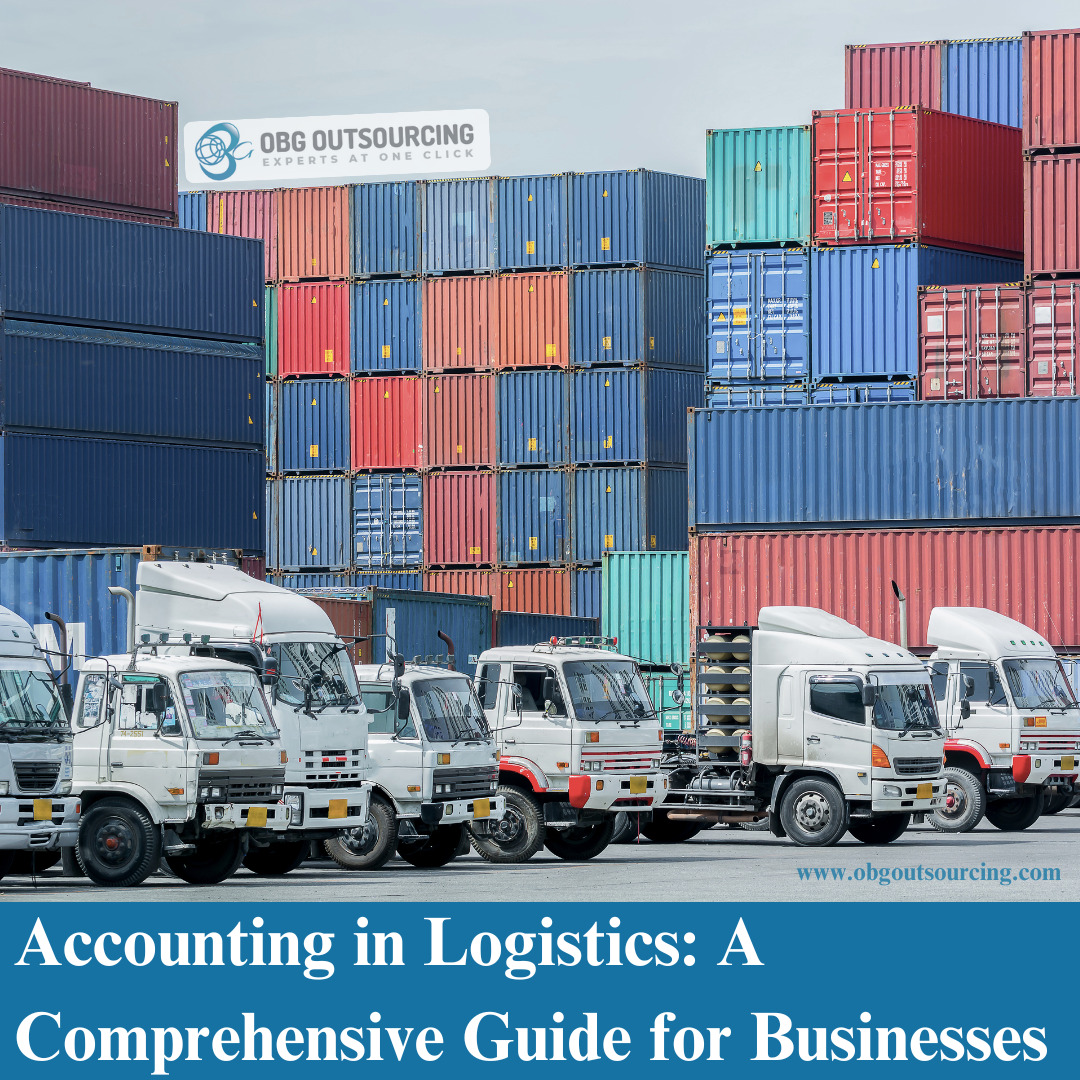What is Accounting in Logistics?
Accounting in logistics refers to the financial management of transportation, warehousing, inventory, and distribution operations. Logistics businesses handle high volumes of transactions related to freight costs, fuel expenses, warehousing, supply chain financing, customs duties, and transportation charges, making precise accounting crucial for profitability and compliance.
Logistics accounting tracks revenues, expenses, assets, and liabilities to ensure financial transparency and operational efficiency. It helps logistics companies optimize costs, improve budgeting, comply with tax regulations, and enhance decision-making.
How to Set Up Accounting in Logistics?
Setting up accounting for logistics companies involves establishing financial tracking systems, using the right accounting software, and ensuring compliance with tax laws. Below are the key steps:
1. Establish Financial Accounts
Create separate accounts for different cost components such as fuel, freight charges, warehousing, and customs duties.
Maintain a chart of accounts specific to logistics operations.
2. Track Revenue and Expenses
Record freight income, warehouse rental income, and transportation charges.
Track expenses like fuel, repairs, tolls, and third-party carrier payments.
3. Implement Cost Allocation
Allocate costs to specific shipments, routes, customers, or business units for profitability analysis.
Use activity-based costing (ABC) to track the exact cost per shipment.
4. Automate Invoice and Payment Processing
Use electronic invoicing and accounts payable software to process invoices from vendors and carriers efficiently.
Ensure timely reconciliation of payments with invoices.
5. Maintain Tax and Compliance Records
Track sales tax, VAT, import/export duties, and customs clearance fees.
Prepare audit-ready financial records for regulatory compliance.
6. Monitor Key Financial Metrics
Regularly analyze key financial KPIs such as cost per mile, revenue per shipment, fuel efficiency, and cash flow.
Challenges in Logistics Accounting
Accounting in logistics comes with several challenges due to the complexity of transactions, varying cost structures, and compliance requirements. Some key challenges include:
1. Fluctuating Fuel and Freight Costs
Fuel price fluctuations impact overall transportation expenses.
Dynamic freight rates make cost estimation challenging.
2. Multi-Currency Transactions
Global logistics companies deal with currency conversions, foreign exchange risks, and international tax laws.
3. Complex Tax and Compliance Requirements
Logistics businesses must comply with VAT, GST, customs duties, and transportation tax laws.
Failure to comply can lead to penalties and financial losses.
4. Cash Flow Management
Delayed payments from customers affect cash flow and working capital management.
Managing accounts payable and receivable efficiently is crucial.
5. Inventory and Asset Tracking
Keeping track of fleet assets, warehousing costs, and storage expenses is challenging.
Ensuring accurate stock valuation and cost allocation requires efficient systems.
Best Accounting Software for Logistics Companies
Choosing the right accounting software is critical for automating financial processes, generating accurate reports, and ensuring compliance. Below are some top accounting software options for logistics businesses:
1. QuickBooks
Best for small and mid-sized logistics firms.
Features include invoicing, expense tracking, bank reconciliation, and tax filing.
2. Xero
Cloud-based accounting software ideal for logistics companies.
Offers multi-currency transactions, automated invoicing, and VAT compliance.
3. Sage Intacct
Provides advanced financial management and real-time reporting.
Suitable for large-scale logistics enterprises.
4. NetSuite
Comprehensive ERP solution for logistics and supply chain businesses.
Features include inventory tracking, order management, and financial planning.
5. Zoho Books
Affordable and user-friendly for small logistics firms.
Includes automation, tax compliance, and real-time analytics.
How OBG Outsourcing Can Assist with Logistics Accounting
At OBG Outsourcing, we specialize in providing comprehensive accounting solutions for logistics businesses. Our services ensure accuracy, compliance, and efficiency in managing financial operations.
Our Key Services Include:
Bookkeeping and Financial Reporting – Accurate recording of transactions, expense tracking, and real-time financial reporting.
Accounts Payable and Receivable Management – Timely invoice processing, collections tracking, and vendor payments.
Tax Compliance and VAT Filing – Handling sales tax, VAT, customs duties, and corporate tax compliance.
Payroll Processing – Managing driver payroll, overtime, bonuses, and tax deductions.
Cash Flow Management – Monitoring expenses, optimizing working capital, and ensuring financial stability.
Software Integration – Setting up QuickBooks, Xero, and other accounting software for seamless financial management.
Why Choose OBG Outsourcing?
Industry Expertise – Specialized in logistics, supply chain, and transportation accounting.
Cost-Effective Solutions – Reduce overhead costs by outsourcing financial operations.
Advanced Technology – We use the latest accounting software and automation tools.
Regulatory Compliance – Ensure full compliance with UAE, USA, and global tax regulations.
Scalability – Customized solutions to meet the needs of growing logistics businesses.
Conclusion
Accounting in logistic is essential for cost control, tax compliance, and financial planning. Managing expenses, ensuring accurate bookkeeping, and complying with tax laws are key priorities for logistics companies. By outsourcing accounting services to OBG Outsourcing, businesses can focus on core logistics operations while ensuring financial accuracy and regulatory compliance.
Are you looking for professional accounting services for your logistics business? Contact OBG Outsourcing today to optimize your financial operations and drive business success.
 USA
USA UK
UK Australia
Australia UAE
UAE Canada
Canada

_(7).jpg)
_(6).jpg)


_(5).jpg)
.jpg)
_(4).jpg)
_(1).jpg)
_(2).jpg)
.png)